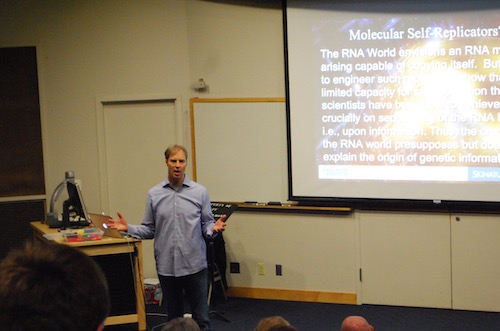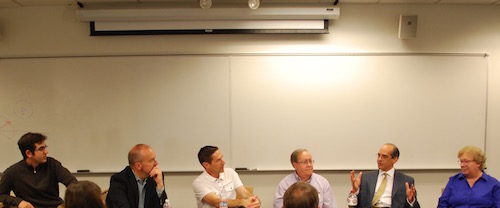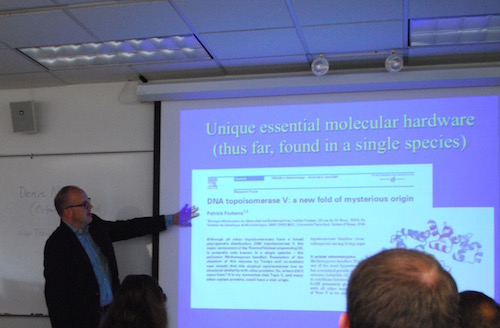 Evolution
Evolution
 Free Speech
Free Speech
 Intelligent Design
Intelligent Design
From Aristotle to Epigenetics: A Report from the 2015 Summer Seminar

This month, over forty undergraduates, graduates, and professionals from around the world, plus some new Discovery Institute staff, gathered in Seattle for our nine-day Summer Seminar, featuring leading intelligent design (ID) scientists and scholars. I was among the new staff on hand for the seminar.
Experts in astronomy, developmental biology, philosophy of science, biochemistry, and more, provided an overview of scientific arguments against neo-Darwinian theory and for design. Morning and evening joint sessions ranged from Stephen Meyer’s presentation on the origins of animal life and the logical and uniformitarian argument for design, to Richard Sternberg and Michael Behe on population genetics, to Jay Richards on the correlation between the conditions that support life on earth, and the factors that make our planet an optimal location for observational astronomy. It was an extraordinary opportunity to hear scientists and scholars present their original research.

During the afternoons, we split into two tracks: ID in the Natural Sciences and the C.S. Lewis Fellows track for social sciences and humanities. In the C.S. Lewis Fellows track for the social sciences, we delved into Darwin’s historical and cultural legacy. Social Darwinism redefined “justice,” so that crime was to be addressed through therapy rather than retribution, paving the way for disproportionately lenient or harsh “punishments.” Scientific materialism influenced views of the human person; modern medicine has a tendency to treat mental conditions primarily through prescriptions, and science blurs the distinction between man and beast, downplaying human uniqueness.
These lectures stimulated discussion both in and out of sessions on subjects from Aristotle to epigenetics. Participants had received and read upwards of a dozen books before the conference, and came ready to engage with the ideas. I found participants in the Summer Seminar to be exceptionally high caliber individuals — informed, articulate, and active in their educational or professional spheres. One doctoral student noted that the networking opportunities at the Summer Seminar were “second to none.” These students and professionals will, I’m sure, help advance the ID movement.

He is not alone. Over the course of the conference, I spoke to a student who had taken a philosophy of science course at a public university where ID was labeled as non-science. The student faced pushback when he expressed his views, while another, from South America, said that at his university he knew he should never mention that he was sympathetic to ID. These individuals are pro-ID scholars, in various walks of life and from different states and countries, who all have encountered pressure to conform to neo-Darwinian views.
In an era of academic suppression, the Summer Seminar provided a forum for thoughtful participants to connect with others in their own and other fields and to discuss real challenges to neo-Darwinism. It was a once-in-a-lifetime opportunity to learn from the pioneers of the ID movement and explore the evidence for design in nature.
